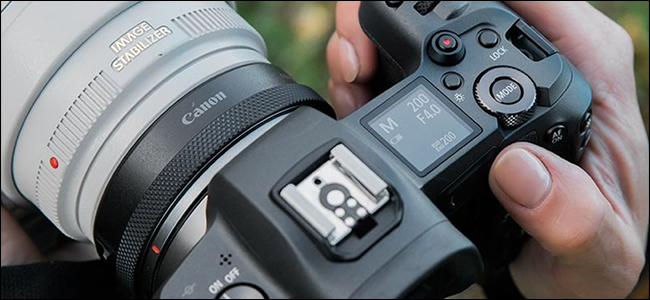Quick Links
Mirrorless cameras aren’t the future, they’re the present. If you're switching from an older DSLR, though, the obvious thing to do is just buy an adapter so you can keep using your old gear.
The Advantages of a Lens Adapter
The biggest advantage of lens adapters is pretty clear: they enable you to use your existing collection of lenses on your new camera. With many mirrorless cameras starting at over $1,000, anything that offsets the cost of switching is much appreciated. After all, mirrorless lenses cost as much as the new camera body.
For most photographers, simultaneously switching systems and replacing all their DSLR lenses with their mirrorless equivalents would cost more than they can justify spending.
So, as the upside of a lens adapter is pretty clear, are there any downsides?
Why Lens Adapters Are Necessary
Mirrorless cameras aren’t just DSLRs without the mirror---they’re a totally overhauled platform. Both Canon and Nikon took the opportunity to radically redesign their decades-old lens mounts, and with good reason. Canon debuted the EF mount in 1987, while Nikon’s F mount has been around since 1959.
The most noticeable change is that the lens mounts are now bigger, and the rear lens elements sit closer to the image sensor. Of course, the actual mount connection has changed, too.
This means lens adapters are necessary because the lens mounts on mirrorless cameras are entirely different from the DSLR mounts they succeed. Canon’s RF mount isn’t just an updated EF---it’s new.
Lens Adapters Add Size, Weight, and Hassle
Lens adapters add physical size and weight to your lenses. It’s not a huge amount, but if you’re buying a mirrorless camera because you want a smaller, lighter setup, this is something to consider. For example, Canon’s most basic EF-EOS R adapter adds an extra inch and four ounces to any lens you use. Nikon’s FTZ adapter adds a bit more weight and bulk because of its tripod mount.
In addition to the size and weight penalty, a lens adapter is simply one more thing you have to remember to take with you on a shoot. If you forget it, you won’t be able to take any photos.
Compatibility Issues
If you switch from a Canon DSLR to a Canon mirrorless camera, and also use a Canon lens adapter, things are pretty sweet. You should be able to use all your lenses happily. If not, though, things get a bit more complicated.
Even if you switch from a Nikon DSLR to a Nikon mirrorless camera, and use a Nikon lens adapter, there are some compatibility issues. Most newer lenses should be fine, as they have built-in autofocus motors. However, because the adapter doesn’t have one, Nikon’s AF and AF-D lenses are manual focus only.
With some older lenses, there’s also no automatic aperture control, which means no electronic metering, automatic exposure modes, or EXIF data.
And that’s even if you stay with the same brand. If you want to mount a Nikon DSLR lens to a Canon mirrorless camera, you’ll need a pricey adapter to get even a fully manual experience.
With Canon, though, there are EF-to-other-brand adapters available for pretty much every platform. Photographer Ken Rockwell even claimed he’s had better results using Canon's DSLR lenses instead of Nikon's on his Nikon mirrorless.
Put simply, though, just because an adapter exists doesn’t mean you’ll have an easy (or pleasant) time switching---especially if you’re mixing brands. Generally, cheaper adapters will give you only manual control. They can also prevent features like image stabilization from working.
Make sure you research the specific trade-offs you'll have to accept before committing to a new system.
Autofocus Might Be Slower
DSLRs and mirrorless cameras autofocus a bit differently. DSLRs have dedicated focus sensors, while mirrorless cameras generally rely on sensors built into the imaging sensor. Naturally, mirrorless lenses are designed to work with the focus on mirrorless cameras, while DSLR lenses are designed to work with DSLRs.
This means if you’re using a lens with an adapter, you might notice it autofocuses slower than it did on your DSLR or with an equivalent mirrorless lens. This is especially noticeable when you’re trying to focus on fast-moving subjects or action shots.
Of course, it’s always ideal if you can replace your DSLR lenses with the equivalent mirrorless lenses for your new mirrorless camera. Unless you’ve got a lot of cash to burn, though, a lens adapter can definitely be a worthwhile trade-off.

